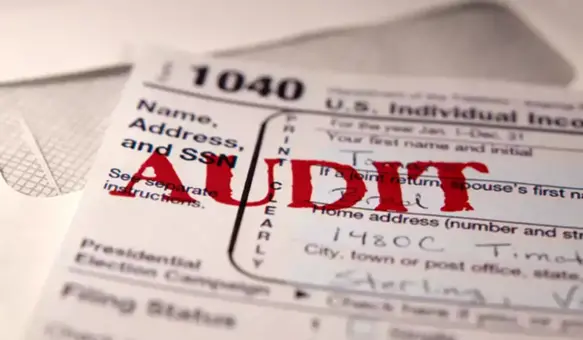Foreign Housing Exclusion for US expats: Rules, limits, and how to claim

Updated for the 2026 filing season, this guide clarifies the foreign housing exclusion for US citizens and resident aliens who spent 2025 abroad. By unpacking which housing expenses qualify – and how the benefit dovetails with the foreign earned income exclusion – it empowers professionals, entrepreneurs, and retirees to trim their US tax bill with confidence. Scan the headline numbers below before you complete Form 2555.
Noteworthy takeaways about Foreign Housing Exclusion
- Foreign Earned Income Exclusion (FEIE): $130,000 per taxpayer for tax year 2025.
- Standard Cap on Qualifying Housing Expenses: $39,000 annually (approx. $106.85 per day).
- Base Housing Amount: $20,800 – this is the threshold (16% of the FEIE) your housing costs must exceed.
- High-Cost Locality Limit: Up to $114,300 in Hong Kong; see IRS Notice 2025-16 for the full global list.
- Form to Use: IRS Form 2555 is required to claim the Foreign Housing Exclusion.
Grasping the concept of Foreign Housing Exclusion
The Foreign Housing Exclusion lets qualifying US taxpayers and Green Card holders living abroad in 2025 exclude a portion of their foreign housing expenses from income they will report on their 2026 return. To use it, you must first meet the foreign earned income exclusion tests and have annual housing expenses above the 2025 base amount of $20,800.
The standard limit is 30% of the 2025 foreign earned income exclusion – $39,000 – unless a higher cap applies under IRS Notice 2025-16 for high-cost localities.
Key distinctions between FEIE and FHE
The foreign earned income exclusion shields up to $130,000 of 2025 earnings, while the FHE covers only qualified foreign housing expenses that exceed the base threshold. Income is excluded first, then any eligible housing costs are removed, providing an extra layer of relief.
Foreign Housing Deduction vs FHE: Don’t get confused
Employees claim the FHE to exclude housing expenses, whereas self-employed taxpayers use the foreign housing deduction to reduce adjusted gross income. Both benefits rely on the 2025 limits set out in Notice 2025-16, but the deduction appears as an above the line adjustment instead of an exclusion on Form 2555.
Foreign Housing Exclusion: Who gets it, and who doesn’t?
For 2025 income reported on your 2026 return, you may claim the foreign housing exclusion or deduction only after you first qualify for the Foreign Earned Income Exclusion. Below are the criteria with which US expats can qualify:
Bona fide residence test
You pass the bona fide residence test by maintaining a continuous, bona fide residence in a single foreign country for the entire 2025 calendar year while your tax home – and the housing expenses you incur – remain outside the United States.
Physical presence test
Alternatively, you meet the physical presence test by being physically present in one or more foreign countries for at least 330 full days during any 12-month period that begins or ends in 2025.
Which expenses actually qualify for exclusion?
The housing expenses that qualify
- Rent you pay for your principal home abroad – the core of your foreign housing expenses.
- Basic utilities (electricity, gas, water, sewer) – must be reasonable for your area.
- Renter’s or property insurance – ordinary coverage on the dwelling.
- Furniture rental – temporary furnishings needed for the leased property.
- Residential parking fees – if required, where you live.
- Minor repairs and maintenance – costs that keep the property habitable.
Housing expenses that don’t qualify
- Buying or improving real estate – purchase price, down payments, or capital renovations.
- Mortgage interest or principal – ownership costs aren’t foreign housing expenses.
- Furniture you purchase outright – the value of assets isn’t deductible.
- Domestic help or gardening services – personal services fall outside the exclusion.
- Meals or groceries – food costs are never housing expenses.
- Lavish or extravagant outlays – luxury villas, yachts, or similar excesses.

Avoid errors while calculating your FHE
High-cost cities and caps
- The standard cap on housing expenses is $39,000 per year; Notice 2025-16 lists higher limits for designated cities.
Sample 2025 caps (annual):
| City | Limit |
|---|---|
| Hong Kong | $114,300 |
| Luanda | $84,000 |
| Tokyo | $67,700 |
Numerical breakdown aimed at guiding expats:
- A consultant in Hong Kong spent $48,000 on qualified housing in 2025.
- Subtract the base housing amount $20,800 → housing cost amount $27,200.
- Because $48,000 is below Hong Kong’s $114,300 cap, the entire $27,200 may be excluded; reducing taxable income in addition to any FEIE claimed.
Use Form 2555 to report the calculation, and remember that claiming the exclusion can affect the Foreign Tax Credit.
Currency conversion criteria for housing expenses (2025)
- IRS-approved rates. Pub 54 lets you pick (a) the yearly average (most popular) from the IRS average exchange rate table, (b) a quarter/month average, or (c) the spot rate on the payment date.
- Consistency is key. Once you choose a method, Treas. Reg. S. 1.985-1(d) says you must use it for all 2025 housing expenses.
- What to save. Bank statements plus a PDF or screenshot of the rate source (IRS table, Treasury quarterly “Reporting Rates of Exchange,” or OANDA print-out).
How do I claim the Foreign Housing Exclusion?
You need to file the Form 2555
- Verify that you passed the bona fide residence or physical presence test for 2025.
(Use our tool to check if you meet the 330-day threshold before completing the form) - Complete Part VI of Form 2555, entering your actual foreign housing expenses and the cap for your location from the annual foreign housing exclusion by country notice.
- Carry the allowed amount on line 36 into Part VIII to finalize the exclusion, and, if self-employed, use Part IX for the deduction.
- Attach the finished Form 2555 to your 2026 Form 1040 and keep proof of every qualifying expense.
Before submitting your return, verify your exclusion before filing so your FEIE qualification and housing entries on Form 2555 align with your actual dates and caps.
Form 2555 preview
Is filing separately smarter for expat couples?
No separate return is required just for the exclusion. If both spouses qualify, each must file a separate Form 2555 even on a joint return. One spouse may claim the combined exclusion when you share a household.
Other quick facts to note about Foreign Housing Exclusion
- Employer-provided versus self-paid housing are handled differently on Form 2555, so double-check whether you should exclude employer rent or deduct self-funded costs.
- Use a quick Foreign Tax Credit vs. Housing Exclusion matrix – the option that saves the most tax depends on your income mix and host-country rates.
- “Sticky-domicile” states (e.g., CA, NY, VA) may still tax you, so confirm how they treat foreign housing benefits before you file.
- High-cost cities like Hong Kong, Singapore, Tokyo, Luanda, and Zürich enjoy higher caps under IRS Notice 2025-16, so always grab the latest limit before calculating.
- Certain tax treaties can override Section 911 limits, so review your host country’s treaty article on personal-services income for any special housing provisions.
Get the filing aid you need from experts
Navigating the Foreign Housing Exclusion – especially with location-based limits and dual-income households – can be complex. Taxes for Expats has helped thousands of Americans living abroad claim every dollar they’re entitled to, with expert CPAs who focus on US tax. Let us handle the forms, so you can focus on life abroad.

FAQ
Yes – if you had 2025 wage income and self-employment income, you may exclude the employer-provided portion and deduct the self-paid portion. You can’t apply both benefits to the same dollars.
Reasonable hotel rent counts as a housing expense when the hotel serves as your primary residence abroad. Lavish, short-term, or vacation lodging does not qualify.
Generally yes – your host country may tax you, and the US taxes your worldwide income. You can offset double taxation with a foreign tax credit or by using the foreign housing exclusion where it applies.
Yes – file Form 1040-X with Form 2555 within three years to retroactively elect the foreign housing exclusion for 2025 income. The IRS treats that amended return as your initial choice.



